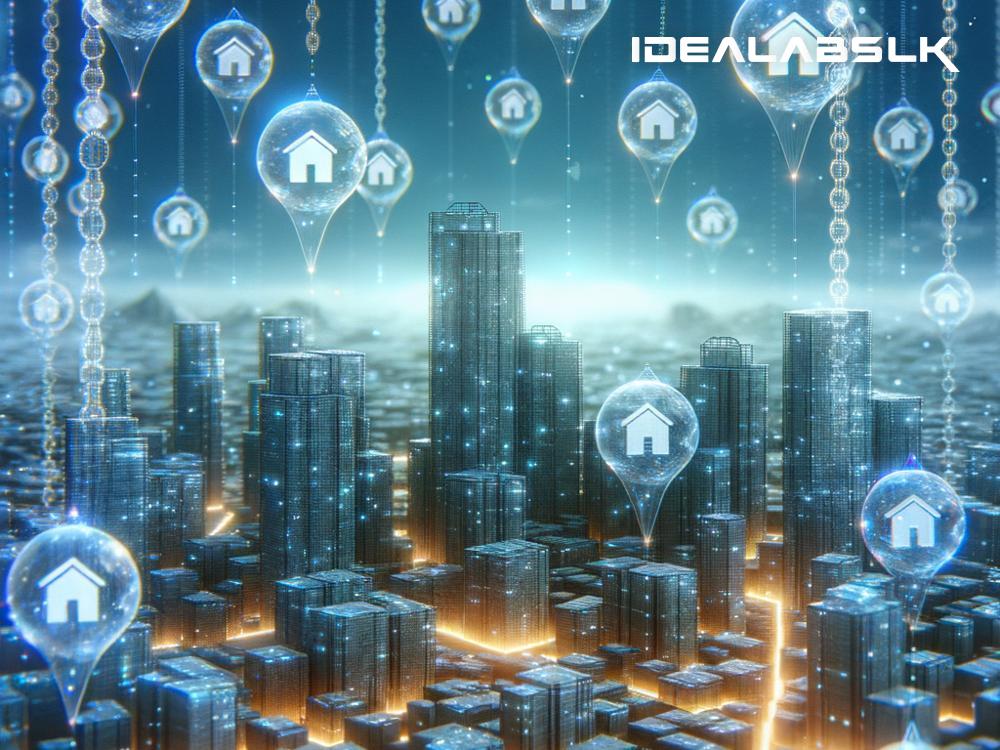Unlocking Real Estate's Potential: A Dive Into Blockchain and Property Tokenization
In an age where technology shapes our daily lives, the real estate sector is on the cusp of a significant transformation. Thanks to blockchain technology, a concept known as "property tokenization" is making headlines, promising to revolutionize how we invest in, own, and sell property. But what does this all mean? Let's break it down into simple English.
What is Blockchain?
Imagine a digital ledger that's accessible to numerous people across the globe simultaneously. This ledger records transactions in a manner that is highly secure, transparent, and almost impossible to tamper with. That's blockchain in a nutshell. Initially famed for being the technology underpinning cryptocurrencies like Bitcoin, blockchain's potential extends far beyond, touching sectors like healthcare, finance, and, you guessed it, real estate.
Property Tokenization: The Basics
Tokenization is the process of converting rights to an asset into a digital token on a blockchain. When it comes to real estate, this means breaking down the value of a property into multiple tokens that represent shares of the underlying asset. Imagine a million-dollar building being divided into 1,000 tokens; each token represents a 0.1% share of the property. These tokens can then be bought, sold, or traded, often with fewer restrictions and lower costs than traditional real estate transactions.
Why Tokenize Real Estate?
Real estate has always been considered a lucrative investment, but it's not without its barriers. High entry costs, complex buying processes, and liquidity issues (i.e., how quickly and easily an asset can be converted into cash without losing value) have traditionally kept smaller investors at bay. Property tokenization addresses these barriers head-on by offering:
-
Accessibility: By breaking down property value into affordable tokens, tokenization lowers the entry point for investors. You no longer need deep pockets to start investing in real estate.
-
Liquidity: Tokens can be traded on digital platforms, making it easier to buy or sell shares of a property. This increases market liquidity, making real estate investments more akin to buying and selling stocks.
-
Transparency and Security: With blockchain, every transaction is recorded on a public ledger, enhancing transparency. The technology's secure nature also minimizes the risk of fraud.
-
Efficiency: Tokenization streamlines the investment process, cutting out middlemen, reducing paperwork, and making transactions faster and cheaper.
The Process of Real Estate Tokenization
Turning a property into a tradable set of digital tokens involves several steps:
-
Asset Selection: Not every property is suitable for tokenization. The process often starts with selecting a high-value, marketable asset.
-
Legal structuring: Converting real property rights into digital tokens requires navigating complex legal landscapes. This step ensures that the tokens are compliant with current regulations.
-
Token Creation: Using blockchain, tokens representing shares of the property are created. Each token is unique, transparent, and immutable (unchangeable).
-
Token Distribution and Trading: Tokens are then made available for purchase. After the initial sale, they can be traded on digital marketplaces.
Real-World Applications and Benefits
Diversification: Investors can now easily spread their investments across multiple properties in different locations, reducing risk.
Global Reach: Blockchain makes it possible for investors around the world to buy, sell, and trade property tokens without the bureaucratic hassle of cross-border transactions.
Inclusion: Small investors get a shot at the real estate market, which has long been dominated by wealthy individuals and institutional investors.
Efficiency Gains: The real estate sector benefits from streamlined processes, reducing the time and cost associated with property transactions.
The Road Ahead
While property tokenization on the blockchain harbors immense potential, it's not without challenges. Regulatory hurdles, market acceptance, and technological limitations are just a few of the obstacles that need to be navigated.
However, as regulatory frameworks evolve and technology advances, the tokenization of real estate assets is poised to become a game-changer, democratizing access to one of the oldest and most stable investment classes.
In conclusion, blockchain for real estate property tokenization is much more than a buzzword. It's a transformative technology that promises to make real estate investing more accessible, liquid, and efficient. By harnessing the power of blockchain, we're not just reimagining the future of real estate; we're actively building it. Welcome to the age of digital real estate.

